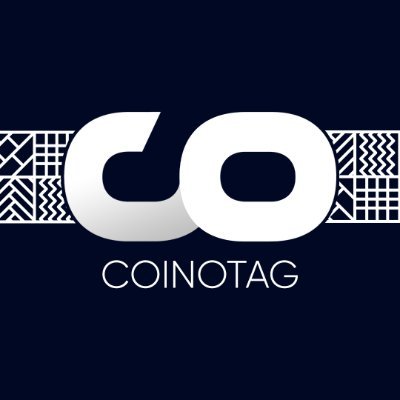Cryptocurrency Custody: The SEC has issued a no-action letter allowing registered investment advisers to treat state-licensed trusts as qualified crypto custodians, provided that the trusts meet a banking mandate, asset segregation, and contractual restrictions on lending or remortgaging, while the advisers retain fiduciary responsibility.
-
The Securities and Exchange Commission (SEC) allows state-chartered trusts as qualified crypto custodians under strict conditions.
-
Project Crypto and industry analysts say the move signals clearer regulation and thoughtful integration of digital assets.
-
DePIN token distributions are distinguished from securities when tokens reward participation in the network rather than investment returns.
Cryptocurrency custody is approved by the Securities and Exchange Commission (SEC) for state-licensed trusts; Advisers must confirm their banking license and separation. Read compliance steps and their implications — learn more.
The Securities and Exchange Commission (SEC) clears state trusts for holding cryptocurrencies and expands its no-action guidelines to include token distribution models.
- The Securities and Exchange Commission (SEC) allows advisors to treat state-licensed trusts as qualified crypto custodians under strict conditions.
- Analysts see the move as a shift towards clearer rules, with the Crypto project signaling broader regulatory openness.
- DePIN token models are distinguished from securities as rewards for participating in the network, rather than as investment schemes.
What does the SEC’s No Action Letter change about crypto custody?
The SEC’s no-action letter clarifies that registered investment advisers may treat state-licensed trusts as qualified custodians of cryptocurrency assets when the trusts have express banking authorization, maintain separate holdings, and accept contractual limits on lending or use of client funds. Advisers remain responsible for client protection and compliance.
How should advisors check trustworthiness?
Advisers must ensure that the state-approved trust holds authorization from the relevant banking regulatory bodies to provide cryptocurrency custody services. Custody agreements must expressly prohibit the lending or remortgaging of cryptocurrencies to a client without consent and ensure that the client’s assets are separated from the trust’s property.
Why does this matter for funds and advisors?
The advance clarification reduces operational uncertainty for cryptocurrency fund managers and advisors who previously faced restrictive interpretations under prior SEC guidance. The decision could expand custody options for regulated funds and clients while keeping fiduciary duties and compliance checks squarely on advisers.
What did industry experts say?
James Seyphart, a Bloomberg ETF analyst, described the message as increased clarity for the digital assets sector. Observers link this approach to the SEC Chairman’s Project Crypto Initiative, which aims to reduce unnecessary regulatory friction while integrating digital assets into financial markets.
How does the SEC’s position impact token distribution models like DePIN?
The SEC issued a separate no-action letter addressing DePIN (Decentralized Physical Infrastructure Network) token models. The agency acknowledged that tokens distributed as programmatic rewards for services such as storage or bandwidth are different from capital raising vehicles and therefore may fall outside the classifications of securities evaluated under the Howey Test.
What distinguishes DePIN tokens from securities?
DePIN tokens are typically allocated as compensation for participating in the network or providing a service, rather than as an investor-funded promise of profit. The SEC noted programmatic distribution and lack of fundraising intent as factors that separate these tokens from securities-regulated investment contracts.
What compliance steps should advisors take now?
Advisers must conduct due diligence and contractual safeguards before relying on state-licensed trusts as trustees. Here are the practical steps to follow:
- Verify your trusted banking license with relevant state or federal regulators.
- Include an express contractual prohibition on lending, remortgaging, or commingling cryptocurrencies to the customer.
- Ensure crypto assets are separated from trust-owned property and provide access to audit or reporting standards.
- Document fiduciary decisions that demonstrate that trust arrangements are in the best interests of customers.
- Monitor ongoing regulatory guidance and maintain incident response and asset recovery plans.
Frequently asked questions
Can advisors treat state-licensed trusts as custodial banks under the Investment Advisers Act?
Yes. Under a no-action letter issued by the SEC’s Division of Investment Management, advisers may treat state-chartered trusts as banks for custodial purposes if the trusts hold an appropriate banking license, enforce segregation, and adhere to indenture restrictions. Advisors must document their credit evaluation.
Does a no-action letter change securities law?
no. The SEC emphasized that the letter does not change existing laws or carry independent legal force; It reflects enforcement discretion in specific circumstances but does not change statutory definitions or replace formal rulemaking.
Are DePIN premium dividends now categorically non-securities?
The SEC noted that some models of DePIN tokens — where the tokens compensate for participation in the service rather than increasing an investor’s capital — could be treated differently than securities. Each model must be evaluated on the basis of facts and distribution mechanisms to determine the rating.
Key takeaways
- Organizational transformation: The SEC’s no-action letter opens custody options by recognizing state-licensed trusts when compliance standards are met.
- Consultant’s responsibility: Advisors must verify licensure, enforce separation, and document credit decisions.
- Code clarity: DePIN-style software token distributions can be distinguished from securities based on the distribution mechanisms.
conclusion
The SEC’s dual no-action letters represent a cautious move toward clearer rules for crypto custody and token distribution. Advisors should act now to verify trust mandates, strengthen custody agreements, and document compliance decisions. Expect continued regulatory improvement under Project Crypto and continued guidance from the SEC.
Publication date: 10-01-2025 | Updated: 2025-10-01 | Author: Quinotage
In case you missed it: Arthur Hayes suggests France’s €168 billion deficit could trigger trillions in ECB quantitative easing, possibly funneling capital into Bitcoin





